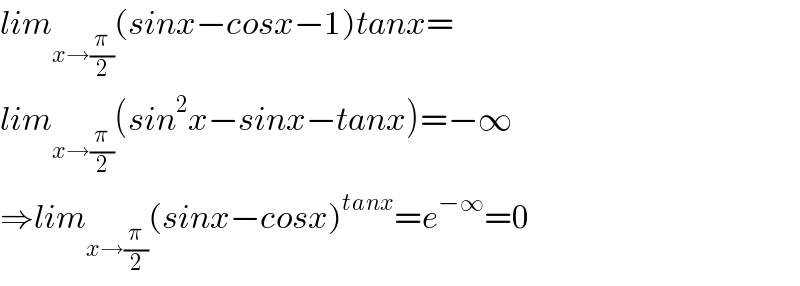
Question and Answers Forum
Question Number 70653 by naka3546 last updated on 06/Oct/19

Commented by kaivan.ahmadi last updated on 06/Oct/19

Answered by sadimuhmud 136 last updated on 06/Oct/19

| ||
Question and Answers Forum | ||
Question Number 70653 by naka3546 last updated on 06/Oct/19 | ||
 | ||
Commented by kaivan.ahmadi last updated on 06/Oct/19 | ||
 | ||
Answered by sadimuhmud 136 last updated on 06/Oct/19 | ||
 | ||